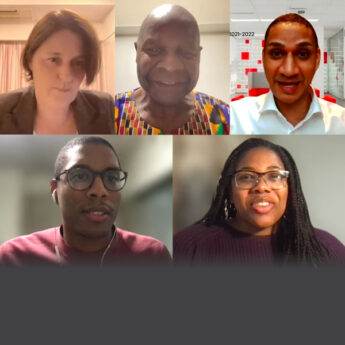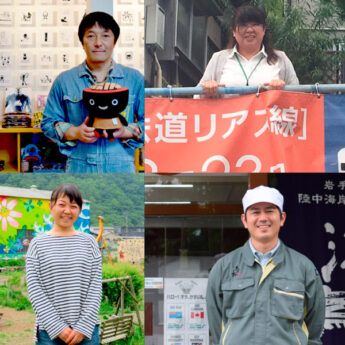In honour of International Women’s Day on 8 March, the British Chamber of Commerce in Japan (BCCJ) and the British Embassy Tokyo held a panel discussion to explore the difficulties faced by women in Japanese and British business and trade.
The conversation is particularly relevant given that the UK and Japan have recently agreed to a standalone chapter on Trade and Women’s Economic Empowerment in the UK–Japan Comprehensive Economic Partnership Agreement (CEPA).
CEPA came into force earlier this year, solidifying a shared ambition to support and enhance the role of female employees and business leaders in the global economy.
With words from a collection of esteemed panellists, moderated by Sue Kinoshita, chargé d’affaires at the British Embassy Tokyo, the event provided a forum in which current challenges, best practices and potential solutions for both the UK and Japan were discussed.

Global efforts
Graham Zebedee, the UK’s chief negotiator for the UK–Japan CEPA, opened the event with a pre-recorded speech. He addressed problems of gender inequality in international trade, suggesting how trade policy might help tackle the issues.
“As we all know, the world is emerging from the Covid-19 pandemic and it’s not affected everyone equally”, he said, adding, “many studies have shown that women are likely to be disproportionately affected by its economic impacts. To respond to this crisis, we need policies which recognise the vital role that women, as workers and business owners, play in driving growth and recovery.
“It’s very clear that there’s a real-world problem to address here,” he said, explaining that only one in three entrepreneurs in the UK are women. If women started businesses as often as men did, that would be over a million extra businesses in Britain. “But women often face extra barriers to starting businesses and scaling them up, such as less access to capital and credit. Globally, for example, businesses led by women collected less than three percent of global venture capital in 2017. That means that they, in turn, participate less in international trade”.
As regards women’s role in trade and leadership, Zebedee stated: “The Trade and Women’s Economic Empowerment chapter of our trade agreement commits us to work together to increase the ability of women—both as business owners and as workers—to access the benefits of the agreement. We’re convinced that, together, we can promote initiatives that increase women’s access to technology, markets and finance; as well as develop women’s business networks and promote workplace flexibility, highlighting the importance of advancing women’s leadership”.
Japan’s efforts
Whilst gender equality has increased in the Japanese workplace, old habits are slow to change. Nami Katagiri, assistant to general manager for human resources (HR) at Sumitomo Corporation, discussed what the firm has been doing to fight gender inequality.
“On top of global HR, I’m also working on transforming and driving equality in the workplace. When you hear about a company like this one, you would assume that it is heavily male-oriented or male-led. Until about 20 years ago, women mainly were hired for some of the indirect office support functions. But more recently, Sumitomo has been actively hiring and developing women for more active professional and managerial roles. Our future challenges are how can we encourage female employees to maintain a high level of ambition, and how can we help them build their capabilities so they can achieve their aspirations?”
Katagiri went into detail about her own experiences, having been a part of Sumitomo for more than 15 years. Before joining the HR Department, Katagiri was employed in the business operations section of the Mineral Resources & Chemicals Division, working on deals and working for extended periods of time in countries in South America and Africa. “I have always felt that Japanese corporations have challenges when it comes to global standards. We think diversity and inclusion are especially relevant and important for Japanese corporations. I think that the same applies to gender issues in Japan. We want to make the company—and Japanese society—stronger, more diverse and more resilient”.

Conscious change
Yasunori Takeuchi, the chief executive officer (CEO) of Standard Chartered Bank, Japan, who is also responsible for diversity and inclusion (D&I) at the bank, spoke on the firm’s role in supporting and maintaining D&I.
He explained that Standard Chartered is promoting D&I as part of their leadership role through the use of specialised programmes. “In our hiring process, we ensure that we have both men and women on the panel. We offer a mentorship programme for women to develop their skills within our company. We were also a sponsor of the 25th International Conference for Women in Business last year”.
Standard Chartered has developed an education programme called GOAL, designed for girls aged 12 to 18 living in developing countries. “So far we have had 646,000 girls complete the programme. We are aiming for one million to complete it by 2023”.
Providing insight into the role of women in trade was Noriyuki Shikata, assistant minister and director-general at the Economic Affairs Bureau of the Ministry of Foreign Affairs (MOFA) of Japan. “In my view, the Trade and Women’s Economic Empowerment chapter in the UK–Japan CEPA shows the importance of long-term investment in future female business leaders and professionals. For instance, 56 percent of those joining MOFA on the management track this year are women. It is critical that we explore these new potential strategic areas of bilateral cooperation in close partnership with the business community, educational institutions and other stakeholders in both countries”. He also spoke to the importance of fostering educational exchanges—an area ripe for further collaboration.
Best practices
Mika Nabeshima, the general manager for global HR at Tokio Marine Holdings Inc., spoke on behalf of 30% Club Japan. Founded in the UK, the 30% Club is a global campaign actively seeking to increase gender diversity at board and senior management levels by 30 percent. 30% Club Japan began its activities on 1 May, 2019. A cross-company team of large Japanese corporations worked together to gather insights into different kinds of barriers women face in the workplace, and discussed a two-pronged approach to increase the amount of women in senior roles. The first is commitment to promoting women into senior leadership positions, and the second is working to overcome unconscious bias for fair evaluation and development opportunities for women at all levels. While each company has been working on its own initiatives—and making clear progress—the collective effort of 30% Club Japan has developed into a movement to accelerate change in the country.
She also spoke on the practices we can take away from promoting D&I in business. “When we think of women in business, there are so many barriers that still exist. For example, there’s an unconscious bias of what women are good at. We are incorporating various sets of training to eliminate that unconscious bias. This has to be a continuous effort, not just one-time training. We also need to make sure that we are providing women with opportunities to gain experience through challenging projects and assignments, instead of automatically giving those to men, in order to strengthen the pipeline of talent”.
Positive forward
New British Ambassador-designate to Japan, Julia Longbottom CMG, concluded the event with some thoughts on her role as the first female British ambassador to Japan, and how important it is to encourage gender diversity in prominent positions of leadership. “Throughout my four-year tenure, both my deputy and my consul-general in Osaka will also be women. I want to give you my commitment that we will be placing an emphasis on mainstreaming gender issues throughout everything that we do”.
“If we’re not using the full potential of 50 percent of our population, surely we’re missing out. It matters that women can see other people like themselves in leadership, and understand that they can play these roles in the future”. She concluded by addressing the women attending: “You can do anything. There are no limits to what we can do”.






